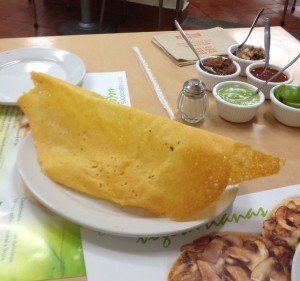 Within one week, Mexico has demonstrated its ability to adopt some characteristics previously credited solely to its northern neighbour: obesity and workplace violence.
Within one week, Mexico has demonstrated its ability to adopt some characteristics previously credited solely to its northern neighbour: obesity and workplace violence.
Last week the United Nations Food and Agricultural Organization (FAO) announced that Mexico has a 32.8 percent adult obesity rate, inching just past the 31.8 obesity rate in the U.S. The news prompted a flurry of jokes in the U.S., mainly acknowledging that the northern neighbors haven´t gotten any thinner, Mexicans just got fatter.
Then, on July 17, a worker at the Department of Health stabbed six of his co-workers in an office dispute. This didn´t take place in some small northern border town known for violence. It took place in downtown Mexico City on Paseo de la Reforma, one of the city´s best known business districts.
Ironically, the stabbing took place on the fourth floor of the ministry of health.
Reportedly, a man used a boxcutter to stab six of his co-workers when one of them came to change his computer, an ordered issued by the departmental boss. They were all transferred to local hospitals; one man is in critical condition.
But can these ills truly be blamed on the U.S.? Can one say that close proximity, or even osmosis caused two trends, generally thought of as U.S. problems, to cross the border?
Yes and no.
It is true that United States companies are the fathers of super-sized sodas, fast (greasy) food and other dietary vices (think of Paula Dean wrapped in bacon then deep fried). Apparently one of the main culprits of Mexican obesity is a sharp increase in soda consumption. According to Dr. Juan Rivera, at Mexico’s National Public Health Institute, the average Mexican drinks 163 liters of soda per year. Much of this soda is U.S.-produced and marketed.
Yet Mexicans are famous for greasy street foods that are their own concoctions – quesadillas and tacos being the least offensive of these. Street stands selling chips and pork rinds abound. Government-sponsored diet text messages actually encourage people to avoid these greasy treats, traditionally eaten between meals: gorditas, tostadas, chalupas, tlayudas, elote (don´t be fooled – just because it is corn doesn´t mean it´s healthy- typically corn kernels are served in a Styrofoam cup mixed heavily with mayonnaise and spices).
It is probably too soon to judge a trend in workplace violence. The number of (recorded) incidents in Mexico remains far lower than that of the U.S. In a country grappling with violence between drug cartels, one can only hope that this was just an isolated incident.
In short, perhaps the northern neighbor should start setting a better example, and that Mexico should realize that some aspects of U.S. culture are not to be emulated.